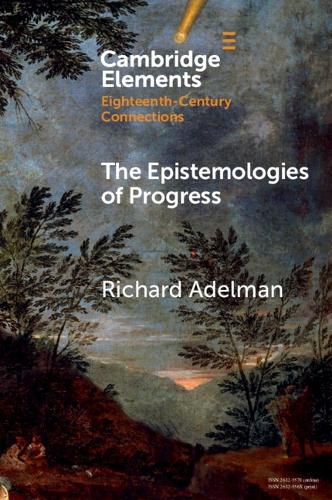Readings Newsletter
Become a Readings Member to make your shopping experience even easier.
Sign in or sign up for free!
You’re not far away from qualifying for FREE standard shipping within Australia
You’ve qualified for FREE standard shipping within Australia
The cart is loading…






The Epistemologies of Progress brings together two recent critical trends to offer a new understanding of Scottish-Enlightenment narratives of progress. The first trend is the new consideration of the ambiguities inherent in eighteenth-century thought on this subject. The second is the fast-growing body of scholarship identifying the surprising role of scepticism in Enlightenment philosophy across Europe. The author's analysis demonstrates that stadial history is best understood through the terms of contemporary scepticism, and that doing so allows for the identification of structural reasons why such thought has been characterized by its ambiguities. Seen in this light, contemporary accounts of progress form a spectrum of epistemological rigour. At one end of this spectrum all knowledge is self-reflexively recognized to be analogy, surmise, 'speculation', and 'conjecture', untethered from lay-conceptions facticity. At the other end stand quotidian political claims, but made alongside reference to the sceptical conception of knowledge and argumentation.
$9.00 standard shipping within Australia
FREE standard shipping within Australia for orders over $100.00
Express & International shipping calculated at checkout
The Epistemologies of Progress brings together two recent critical trends to offer a new understanding of Scottish-Enlightenment narratives of progress. The first trend is the new consideration of the ambiguities inherent in eighteenth-century thought on this subject. The second is the fast-growing body of scholarship identifying the surprising role of scepticism in Enlightenment philosophy across Europe. The author's analysis demonstrates that stadial history is best understood through the terms of contemporary scepticism, and that doing so allows for the identification of structural reasons why such thought has been characterized by its ambiguities. Seen in this light, contemporary accounts of progress form a spectrum of epistemological rigour. At one end of this spectrum all knowledge is self-reflexively recognized to be analogy, surmise, 'speculation', and 'conjecture', untethered from lay-conceptions facticity. At the other end stand quotidian political claims, but made alongside reference to the sceptical conception of knowledge and argumentation.